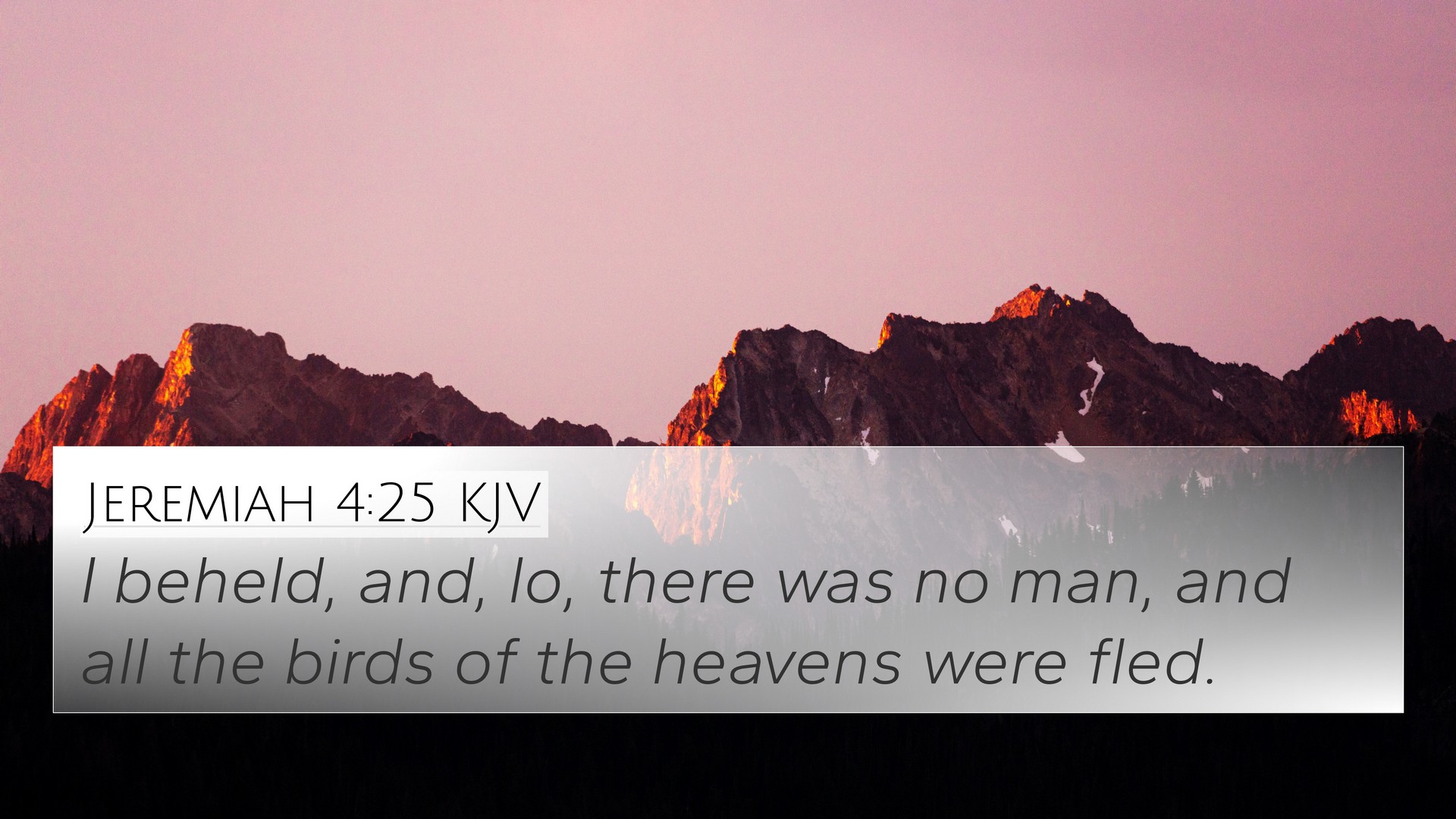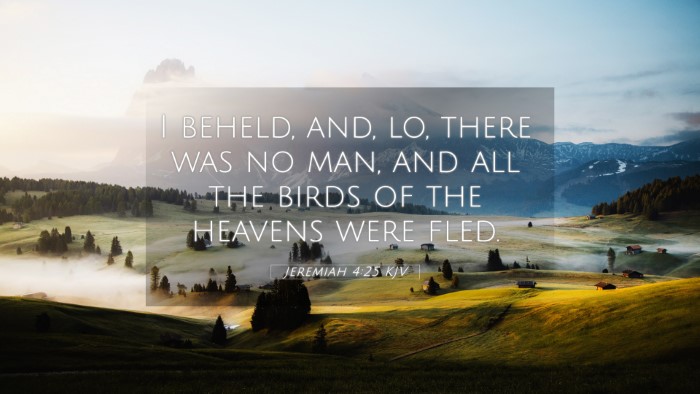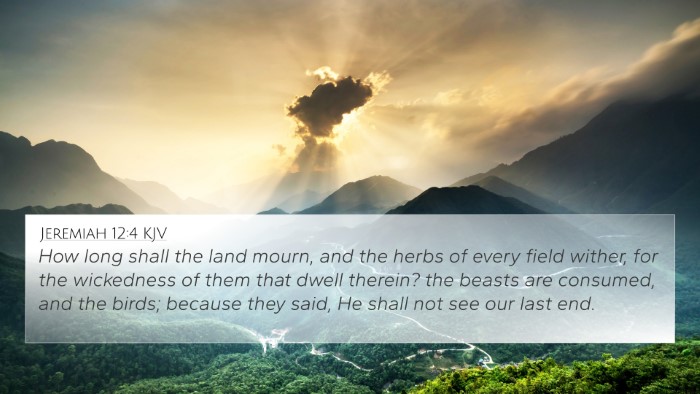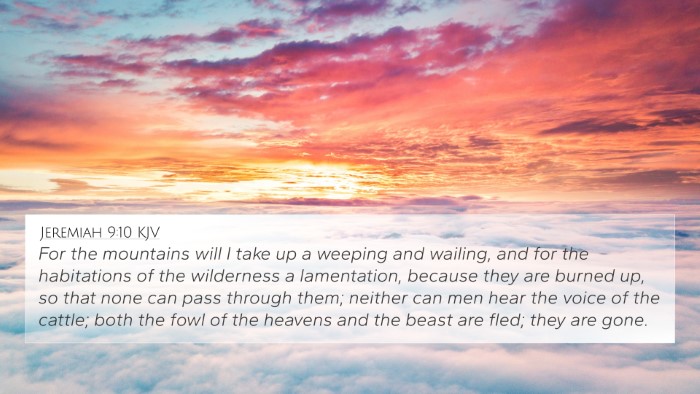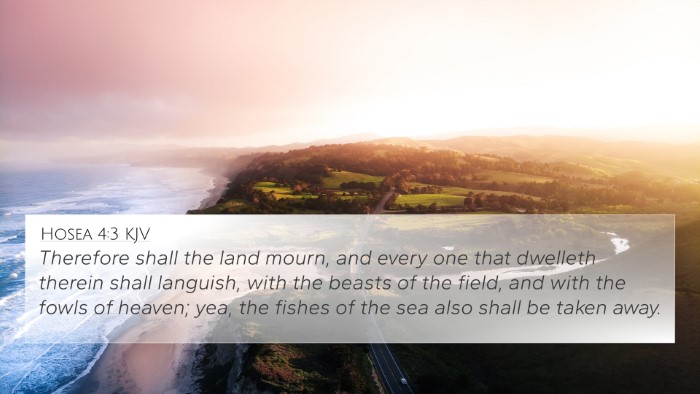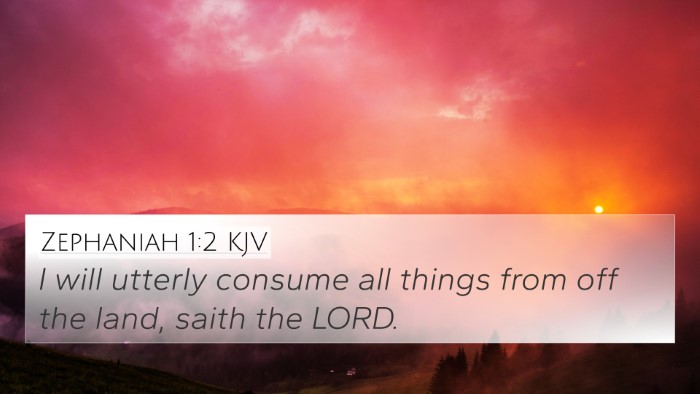Understanding Jeremiah 4:25
Jeremiah 4:25 states, "I looked, and behold, there was no man, and all the birds of the heavens had fled." This verse poignantly captures the desolation that Jeremiah observes in Judah, suggesting a period of great calamity and abandonment. The emphatic absence of humanity and wildlife reflects the dire consequences of sin and the looming judgment that God pronounces through His prophet.
Summary of Insights from Commentaries:
- Matthew Henry: He notes that the phrase "no man" signifies a great desolation resulting from God’s judgment. The absence of life, both human and avian, indicates the catastrophic impact of the coming invasion and destruction, leaving the land empty and void.
- Albert Barnes: Barnes emphasizes that this observation is a foretelling of the destruction that would befall Judah. The fleeing birds symbolize both the loss of God's creation and the impending devastation due to the people's disobedience and idolatry.
- Adam Clarke: Clarke comments on the spiritual implications of this void. He connects the physical emptiness with a moral state of abandonment from God, highlighting that without God, both man and nature suffer the consequences of sin.
Deeper Reflection on Biblical Themes
This verse serves as a powerful reminder of the consequences of forsaking God and the effects of sin on a community's spiritual and environmental conditions. It aligns with various biblical themes that discuss judgment, repentance, and restoration.
Cross-References for Jeremiah 4:25
In studying Jeremiah 4:25, several other scriptures illuminate its meaning and themes:
- Jeremiah 1:10: God's call to uproot and tear down reflects similar themes of judgment.
- Isaiah 24:1: The desolation of the earth due to transgressions echoes the same consequences described in Jeremiah.
- Matthew 23:38: Jesus laments over Jerusalem's desolation due to rejection of His message, parallel to the empty land in Jeremiah.
- Hosea 4:3: This passage describes how the land mourns and all creatures suffer due to human iniquity.
- Micah 7:13: The land will be desolate because of its inhabitants' deeds, similar to the situation in Jeremiah's time.
- Lamentations 1:1: The profound anguish of a deserted city reflects Jeremiah's observations of emptiness.
- Revelation 18:2: The fall of Babylon symbolizes the ultimate desolation for unrepentant nations.
Thematic Connections Between Bible Verses
The connections between these verses highlight the recurring biblical theme of desolation related to disobedience and sin. They serve as cautionary tales that emphasize the severe repercussions of straying from God's commandments.
Tools for Bible Cross-Referencing
For those interested in examining the connections further, various tools and resources can assist in cross-referencing biblical texts:
- Bible concordance: A valuable tool for finding verses that relate to specific themes or keywords.
- Bible cross-reference guide: Many Bible editions include cross-references in the margins, which enhance understanding through connections.
- Comprehensive Bible cross-reference materials: These collections provide extensive commentary and context for comparative studies.
Engaging in Cross-Referencing Bible Study
Through cross-referencing Bible verses, one can identify thematic links, understand the continuity of God's message, and appreciate the depth of Scripture. Each verse enhances the understanding of the others, creating a rich tapestry of biblical truth.
Conclusion
Jeremiah 4:25 serves as a stark reminder of the spiritual void created by turning away from God. In studying this verse alongside others, believers can gain a deeper understanding of the implications of sin, the reality of God's judgment, and the hope for restoration through repentance.
